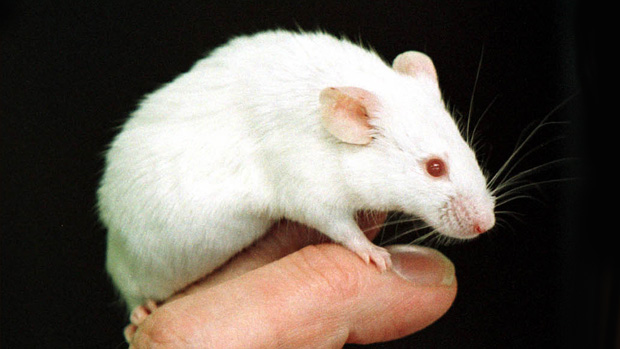Five UK universities named over animal testing
New report sheds light on extent of live animal testing performed at UK institutions

A free daily email with the biggest news stories of the day – and the best features from TheWeek.com
You are now subscribed
Your newsletter sign-up was successful
Oxford tops a list of UK universities that tested on animals in 2014. According to Cruelty Free International, it experimented on 226,739 animals. In second place was the University of Edinburgh, which tested on 200,861.
Mice, rabbits, guinea pigs, fish, amphibians and monkeys were among those used for research.
"The public will be shocked to learn that five of the UK's leading universities are responsible for testing on almost one million animals, despite an increasing number of universities recognising this isn't the way to do research," says Dr Katy Taylor, the director of science at the anti-vivisection organisation.
The Week
Escape your echo chamber. Get the facts behind the news, plus analysis from multiple perspectives.

Sign up for The Week's Free Newsletters
From our morning news briefing to a weekly Good News Newsletter, get the best of The Week delivered directly to your inbox.
From our morning news briefing to a weekly Good News Newsletter, get the best of The Week delivered directly to your inbox.
"We urge them to leave this archaic practice behind and move towards developing innovative and humane research methods for the 21st century."
Universities account for close to half of all animal experiments taking place in the UK. Cruelty Free International named top five as being:
Oxford University (226,739 animals)
University of Edinburgh (200,861)
A free daily email with the biggest news stories of the day – and the best features from TheWeek.com
University College London (176,901)
King's College London (165,068)
Cambridge (160,557)
The report claims some of the monkey experiments involved food or water deprivation, electrodes implanted in their skulls or limbs and loud noises being blasted at them while in their cages.
In a statement, the Oxford University said: "Each trial is designed to minimise the number of animals used." It added that animal care was provided around the clock and that "no procedure using animals should be undertaken lightly".
The research shines a light on vaccine development and the effects of heart disease, malaria and Alzheimer's disease, among others, continued the statement.
That was echoed by the University of Edinburgh, which said that "a small proportion of our research involves the use of animals as a vital component of the quest to advance medical, biological and veterinary science".
The other universities also said animal research played an "essential role" in developing major research breakthroughs in health and medicine.
-
 What are the best investments for beginners?
What are the best investments for beginners?The Explainer Stocks and ETFs and bonds, oh my
-
 What to know before filing your own taxes for the first time
What to know before filing your own taxes for the first timethe explainer Tackle this financial milestone with confidence
-
 The biggest box office flops of the 21st century
The biggest box office flops of the 21st centuryin depth Unnecessary remakes and turgid, expensive CGI-fests highlight this list of these most notorious box-office losers
-
 English literature: is it doomed?
English literature: is it doomed?Speed Read Arts and humanities courses are under attack thanks to a shift to ‘skills-led’ learning
-
 Katharine Birbalsingh: Britain’s ‘strictest head teacher’ takes aim at Jess Phillips
Katharine Birbalsingh: Britain’s ‘strictest head teacher’ takes aim at Jess PhillipsIn the Spotlight Former social mobility tsar accuses Labour MP of racism in Twitter spat
-
 Are UK classrooms a new political battleground?
Are UK classrooms a new political battleground?Speed Read Government has issued new guidance on political neutrality in schools
-
 Kathleen Stock resigns: the ‘hounding’ of an academic on the front line of transgender rights debate
Kathleen Stock resigns: the ‘hounding’ of an academic on the front line of transgender rights debateSpeed Read Sussex University students claim ‘trans and non-binary students are safer and happier for it’
-
 How 100,000 ‘lost children’ disappeared from UK school system
How 100,000 ‘lost children’ disappeared from UK school systemSpeed Read Experts warn that vulnerable pupils may be recruited by gangs after failing to return to education post-lockdown
-
 Why is the government planning to cut arts education funding by 50%?
Why is the government planning to cut arts education funding by 50%?Speed Read Proposal described by critics as ‘catastrophic’ and ‘an attack on the future of UK arts’
-
 Schools do not spread Covid-19, multiple studies find
Schools do not spread Covid-19, multiple studies findSpeed Read Reports from Germany, Norway and the WHO conclude schoolchildren are not vector of infection
-
 Universities must consider refunding students hit by Covid disruption, regulator warns
Universities must consider refunding students hit by Covid disruption, regulator warnsSpeed Read Institutions under investigation as thousands of undergraduates remain locked down amid coronavirus outbreaks